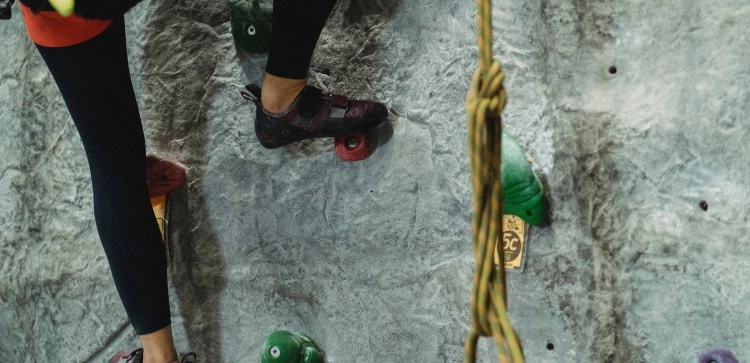The Role Of Nutrition In Climbing Performance

Climbing is a physically demanding sport that requires strength, endurance, and mental focus. To excel in climbing, it's not just about training on the wall; it's also about what you put into your body. Proper nutrition plays a crucial role in enhancing climbing performance, optimizing energy levels, and supporting recovery. In this article, we'll delve into the significance of nutrition in climbing, key nutrients climbers need, meal planning strategies, and the importance of hydration.
- What Are The Key Nutrients That Climbers Need For Optimal Performance And Recovery?
- Protein For Muscle Repair And Growth
- Carbohydrates For Energy
- Healthy Fats For Sustained Energy
- Vitamins And Minerals For Overall Health
- What Are Some Practical Nutrition Tips For Climbers To Maintain Energy Levels During Long Climbing Sessions?
- How Does Hydration Impact Climbing Performance, And What Are The Best Practices For Staying Well-Hydrated During Climbs?
- Find What Works For You
- Conclusion
- Community Questions · 0
What Are the Key Nutrients That Climbers Need for Optimal Performance and Recovery?
Climbing places unique demands on the body, and climbers require a balanced diet to meet those demands. Here are some key nutrients that climbers need:
Protein for Muscle Repair and Growth
Role in Climbing: Climbing involves muscle exertion, and protein is essential for muscle repair and growth. Including the amount of protein your body requires is essential for climbing performance and muscle recovery.
Carbohydrates for Energy
Fueling Climbs: Carbohydrates are your body's primary energy source. Consume complex carbs like whole grains, fruits, and vegetables to sustain energy during climbs.
Healthy Fats for Sustained Energy
Energy Reserves: Fats provide long-lasting energy. Incorporate sources of healthy fats such as avocados, nuts, and olive oil into your meals.
Vitamins and Minerals for Overall Health
Nutrient-Rich Diet: A variety of vitamins and minerals support overall health. Fruits and vegetables are rich in these essential nutrients.
What Are Some Practical Nutrition Tips for Climbers to Maintain Energy Levels During Long Climbing Sessions?
Climbing sessions can be physically taxing, especially during long routes or multi-pitch climbs. Here are some nutrition tips to keep your energy levels up:
Pre-Climbing Snacks:
- Complex Carbs: Consume a carb-rich snack about 30 minutes before climbing for a quick energy boost.
During Climbing:
- Stay Hydrated: Dehydration can sap energy. Sip water regularly during breaks.
- Quick Snacks: Pack easy-to-eat, energy-boosting snacks like energy bars, nuts, or dried fruit.
Post-Climbing Recovery:
- Protein-Rich Meal: After climbing, prioritize a meal with protein to support muscle recovery.
How Does Hydration Impact Climbing Performance, and What Are the Best Practices for Staying Well-Hydrated During Climbs?
Hydration is often underestimated but is critical for climbing performance and safety.
Hydration and Climbing:
- Dehydration Risks: Dehydration can lead to decreased strength, impaired decision-making, and cramping, all of which can compromise safety and performance.
- Electrolyte Balance: Sweat contains electrolytes like sodium and potassium. Replenishing these is crucial for avoiding muscle cramps.
Hydration Best Practices:
- Start Hydrated: Begin your climbing day well-hydrated. Drink water or electrolyte-rich beverages before heading out.
- Regular Sips: During climbs, take regular sips of water or a sports drink. Don't wait until you're thirsty.
- Electrolyte Supplements: On long climbs or in hot conditions, consider electrolyte supplements to maintain balance.
Find What Works For You
Some climbers like to eat a full meal before climbing to give them enough energy for the session and to not get hungry during it, while others prefer to climb after just a light meal to not feel heavy on the wall.
There are climbers, such as myself, who if they don't eat enough, get shaky while climbing, even though they are fresh or in their warmup.
Whatever way works for you, just make sure that you have a well-balanced diet and that you get enough of the nutrients you need to keep you going.
Conclusion
Proper nutrition is not just a matter of health; it's a vital component of climbing success. The right balance of nutrients can fuel your climbs, aid in recovery, and optimize your overall performance. Whether you're a beginner or an experienced climber, understanding the role of nutrition in climbing is essential for reaching new heights and conquering challenging routes.
Remember that everyone's dietary needs may vary, so it's important to find what works best for your body. Consult with a nutritionist or sports dietitian if you have specific dietary concerns or performance goals. By prioritizing nutrition, you'll not only become a better climber but also enjoy a safer and more fulfilling climbing experience.










